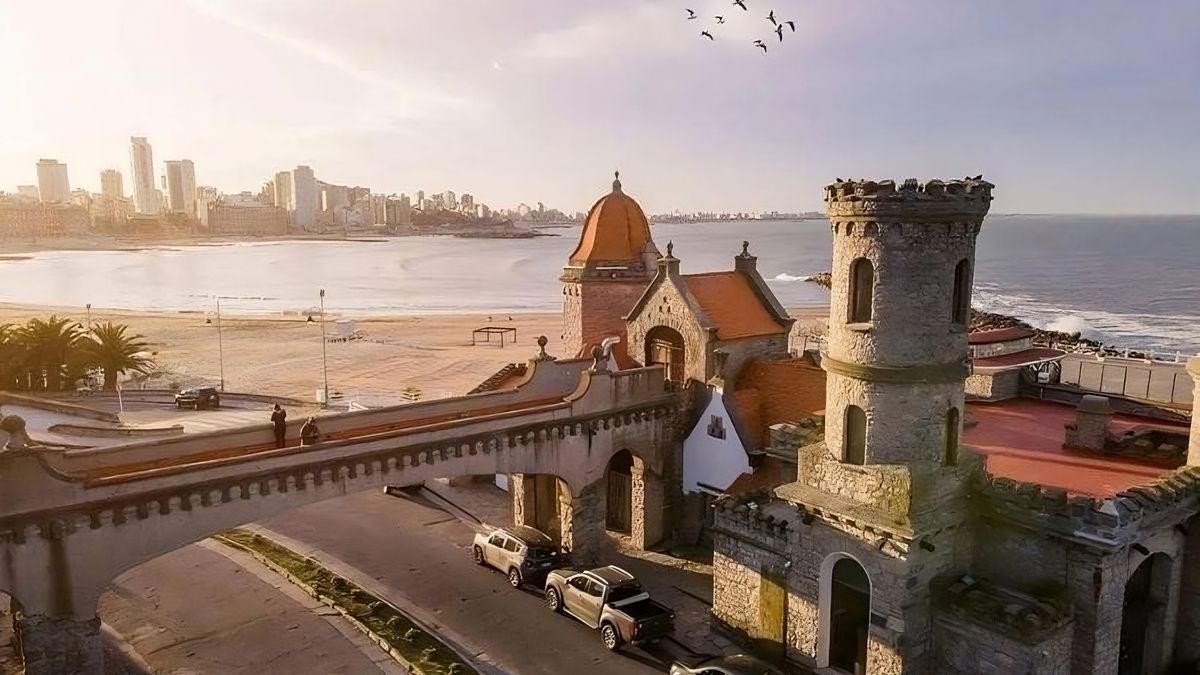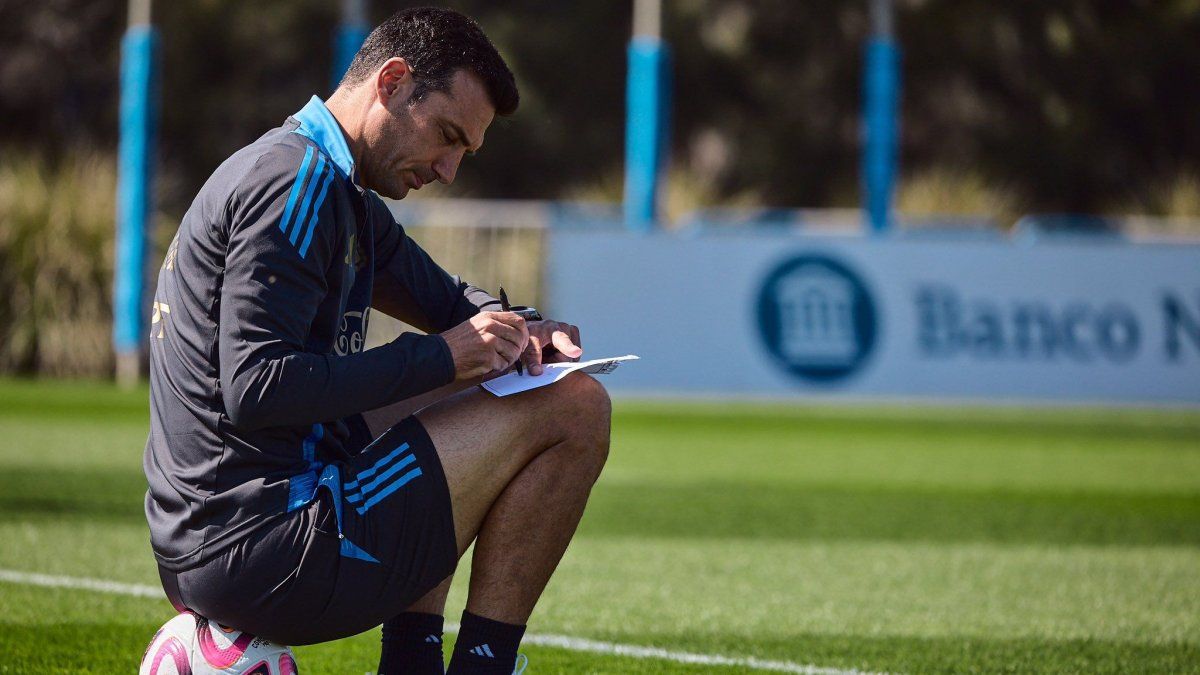In Mar del Plata, where the president will speak this Friday Javier Milei, These things are debated during these hours, although the places to do so are chosen. He business colloquium He is in good shape, above all, for what he usually strives for: the business lobby, the applause for free market economic policies and the stability of the inflation-deficit combo. The business gambit is the order of the day, it is applauded, it is accompanied, it is forcefully believed in the future, but the sui generis practices of a good part of the administration are not mentioned. It is the same gambit as in chess, a practice which consists of sacrificing a pawn or another piece to achieve a favorable position.
That is why in the crystal palace, that mileist Kremlin that is finance, it is necessary to comment on the two nuances that came together in the last hours. On the one hand, President Milei, who at the closing of the BCRA Monetary and Exchange Days he had a slip, perhaps, pointing out that a flexible exchange rate is coming, it is coming. Fantasies of a monarch or programmatic chimera that must be sold sun and shade? On the other hand, Minister Luis Caputo, at the Idea Colloquium.
On the one hand, the President this week departed from the traditional script, the classic verb that predicts that there is still time to get out of the trap, with a deductive trajectory that deserves mention. On the other hand, at practically the same time, the Ministry of Finance reported a substantial increase in public debt, almost an antithesis, a small blockage of elephantine proportions, to what the president promised, and of which we will report here below.
What Milei said, what Luis Caputo repeated: time belongs to God
It is then advisable to focus on the presidential message. Milei maintained that “When there is no more excess money in the market, that will allow the interest rate, the exchange rate and inflation to converge, and when there is no more excess supply of pesos, then I can open the stocks.” The liminal moment was when the president, in full analytical trance, immersed himself fully in the rhetorical questions.
“And when do I get out of the stocks? They ask me and I answer: time belongs to God, I don’t know when the time is,” said the President in front of the attendees in the Conference auditorium. And subsequently he threaded the development of the balances that must be reached before the release of the stocks occurs.
But he continued: “If there is no more excess supply of money, as the money overhand disappears, then I can lift all the controls, open the stocks. Even if I don’t have dollars, because I am going towards a flexible exchange rate system.” …Of course, the president acknowledged that, at least initially, this exchange rate movement could have an “induced inflationary” impact, but of short duration.
We are here at the Colloquium to reaffirm our creed
Minister Luis Caputo articulated this line on Wednesday. Before an audience that had just arrived at La Feliz, He repeated the same mantra that hours later, in private and before businessmen, his adjectives evoked.Santiago Bausili, and the coordinating secretaries of Production and Energy and Mining, Juan Pazo and Daniel González, in the Torreón del Monje restaurant.
To put it in a sentence: that laundering is a success (it already has US$14 billion), the BCRA’s “crawling peg” is going to continue in the same way, negotiations are underway with the IMF but there is still no news and even less “new money”, the dollars What savings Argentines have must be put to work in the economythe stocks will be released at the time but not now, but there will be partial measures, the one announced yesterday with the shortening of the deadlines for the payment of imports, some that will be related to the flow of investments and finally, the transfer of profits to the abroad. More interest rate from the BCRA? No, for now, for banks, the way out is to lend more.
More debt, the real complication to get out of the trap
On Wednesday, just at the same time that Milei was doing his number, and perhaps marking part of an equation that seemed to distance the Government from what the president was cadently repeating before the BCRA auditorium, the Ministry of Finance that depends on the Ministry of Economy gave to hear a worrying report. He reported that in nine months, The gross debt stock increased by US$89,395 million.
81% of the debt corresponds to National Treasury Securities and Bills, 17.2% to obligations with Official External Creditors, 0.9% corresponds to Transitory Advances and the remaining 0.9% to other instruments. All this was linked with the comments of the former vice president of the BCRA, Gustavo Cañonero, who in the same Conference had warned about the stock of current debt as one of the main obstacles to advancing in the lifting of the stocks and perhaps, as a shot for lifting to the shortcomings of the current economic and financial program.
There are plenty of pesos, there are plenty of dollars, there is a lack of trust
The former official maintained that The Argentine economy has pesos left over. “In terms of stock we still have a big problem of excess weight. At the parallel exchange rate they are US$85,000 million. What one expects the Government to do is strengthen the genuine demand for pesos,” he said. The economist said that “this is worrying since if one wants to have a stability program, this (the excess pesos) has to be relevant in the process of designing a program.”
Beyond the fact that the Government has managed to compress the exchange gap and increase the public’s demand for pesos through credit with its measures, with a rate increase, Cañonero considered the stock problem is not resolved. He considered that solving the problem of surplus pesos “is the great Argentine challenge”, since in his opinion “fiscal adjustment solves only the flow and the disaster of recent years remains in the stock.”
Along these lines, a report published by the Mediterranean Foundation in recent days maintained that “Although the President does not want to set a date for lifting the exchange rate, hoping that inflation will drop further and have more dollars in the Central Bank, among other conditions, he should not let the open window pass.” that the electoral calendar suggests in the coming months. The speculation from the Mediterranean is that later, with the elections very close, it would be more complex.
In parallel, the Bloomberg agency reported a few hours ago that Some United States banks that visited the country in recent months returned with the message to their clients that President Milei does not plan to release the stocks, at least, until after the 2025 elections.. Will it be?
Source: Ambito
I am an author and journalist who has worked in the entertainment industry for over a decade. I currently work as a news editor at a major news website, and my focus is on covering the latest trends in entertainment. I also write occasional pieces for other outlets, and have authored two books about the entertainment industry.



